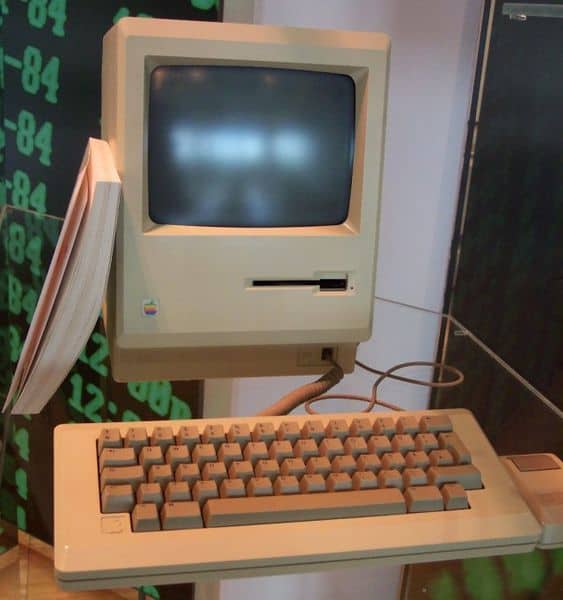
Steve Jobs didn’t just create products, he created consumer identities. Sure, he changed the way we listen to music, chat on the web, talk on the phone and a whole hosts of other things, but what I think is so remarkable is that he changed the way we express who we are through the technology we own. Are you a Mac or a PC? Do you have an iPhone or a Blackberry? These are questions that tell us as much about one’s identity as some of the questions on the national census report.
The first time the name Mac(intosh) took on a meaning that meant more to me than “lackluster computers that geeks like” I was at a summer journalism camp at Ball State University. I decided to take a course in page design and thus had my first in-depth encounter with an Apple computer (and consequently Adobe products). It was love at first crash. Back then, Macs were different beasts. They were big and clunky machines; there were zip disks & drives, lots of crashes met with that error message with the bomb (the equivalent of today’s spinning wheel of death) and many nights spent scouring autosave vaults for files that you’d likely end up spending the next six hours recreating. But somehow, instead of swearing off Macs forever, you felt like you’d just been hazed in to Mac fraternity. Suddenly PC’s didn’t seem like better products at all. You began to enjoy the window-less operating system, you began to feel superior to your friends who’s PC’s told them what to do instead of the opposite.
As Mac products improved, I became a die-hard user. Each time a new product came out, I felt like it was made just for me, like the people at Mac had been in the lab with me that time I lost the whole front page of the paper an hour before it needed to go to print, they had heard my expletives and they had fixed it for me. That’s the magic of Steve Jobs Apple Fraternity, he kept innovation and the forefront of the company and was never afraid to pick a starting point and then continue to improve. And improve they absolutely did.
I was the proud owner of a first generation iPod. I think back on it, with those four buttons at the top and that circle-dial thingy, its Game-Boy like screen that only listed songs. In comparison to the iPod’s of today it seems laughable, but in 2002 when I pulled it out of my bag on an airplane, the grown man next to me gasped and said “can I see that?” That was (and still is) the incredible thing about Steve Job’s innovation; it compelled you to just reach out touch it. Likewise, I remember sitting in a Starbucks in 2005 and pulling out my Powerbook G4 and the gentlemen sitting across from me stuttering in to his cell-phone. He caught his breath and then apologized to whomever he was speaking and said, “Sorry, someone just took out the computer of my dreams.” That’s how I felt just last year when I first held the iPad.
Steve Job’s legacy is vast. He will be remembered as an innovator, visionary and tremendous business leader. But what I will take from Steve Jobs is a story of transparent growth. His willingness to introduce a product and then improve upon it in front of our very eyes is a tremendous testament to his strength and courage. I can only hope that I can mirror that behavior in my life. Just imagine, if we all said, “here’s my starting point, now help me grow to the next level”, and did this continuously throughout our lives. Sure the criticism would be tough, and the journey difficult, but eventually you’d grow from being a 1998 iMac into a 2011 iPad, and I think that’s pretty cool. I’m proud to say, I’m some version of a Mac, we’ll see where I end up.






